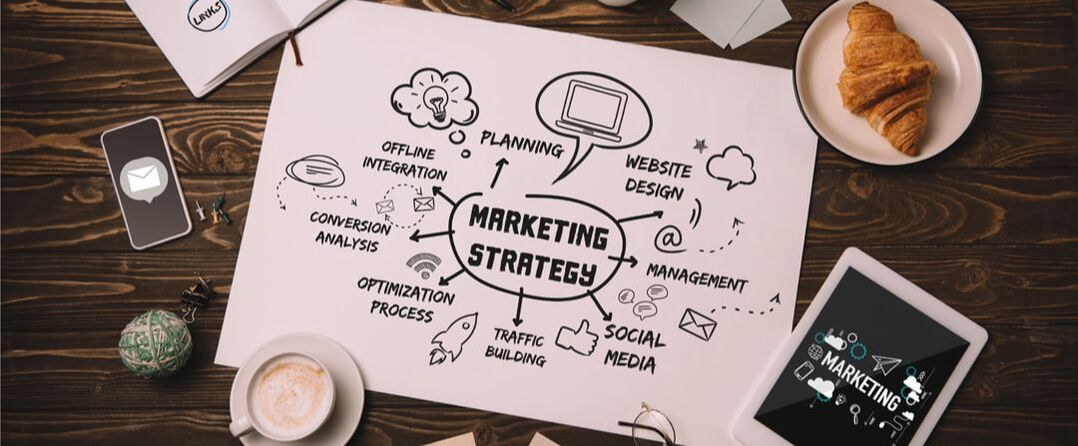|
In the digital age, where social media platforms are bustling with conversations and interactions, businesses have an incredible opportunity to gain insights and connect with their audience through social listening. Social listening involves monitoring online conversations—on social media, forums, blogs, and other digital channels—to understand what people are saying about your brand, industry, or relevant topics. In this blog post, we'll explore the numerous benefits that social listening can bring to your business.
1. Understanding Your Audience Social listening provides a direct window into the thoughts, opinions, and sentiments of your audience. By monitoring their discussions, you gain a deeper understanding of their preferences, pain points, and interests. This knowledge is invaluable for tailoring your products, services, and marketing strategies to meet their needs effectively. 2. Brand Reputation Management Monitoring online conversations allows you to manage and protect your brand reputation effectively. By promptly addressing customer concerns, responding to feedback, and resolving issues, you demonstrate your commitment to customer satisfaction. Social listening helps you catch potential reputation issues early and take proactive measures to mitigate them. 3. Competitive Intelligence Social listening is not limited to your brand alone; it extends to your competitors as well. By monitoring what people are saying about your competitors, you can gain valuable insights into their strengths, weaknesses, and market positioning. This competitive intelligence can inform your own business strategies and help you identify areas for improvement. 4. Identifying Trends and Opportunities Stay ahead of the curve by identifying emerging trends and opportunities in your industry. Social listening allows you to track industry discussions, monitor hashtags, and identify popular topics. This information can guide your content strategy, product development, and marketing campaigns. 5. Product and Service Improvement Listening to customer feedback—both positive and negative—provides a goldmine of insights for improving your products or services. Whether it's a feature request, a complaint, or a suggestion, social listening allows you to gather feedback directly from your target audience and implement changes that resonate with their expectations. 6. Content Strategy Refinement Understanding the type of content that resonates with your audience is crucial for an effective content strategy. Social listening helps you identify the topics, formats, and channels that are most popular among your audience. This information enables you to refine your content strategy and create more engaging and relevant content. 7. Influencer Collaboration Opportunities Social listening helps you identify key influencers and thought leaders in your industry. By monitoring their conversations, you can identify collaboration opportunities. Influencers often share valuable insights, and their endorsement can significantly impact your brand's visibility and credibility. 8. Crisis Management In the event of a crisis or negative publicity, social listening allows you to assess the situation quickly and respond appropriately. Being aware of discussions and sentiments surrounding a crisis enables you to formulate a strategic and timely response to address concerns and maintain transparency. 9. Audience Engagement and Relationship Building Social listening is not just about monitoring; it's also about engaging with your audience. Responding to comments, participating in discussions, and acknowledging mentions of your brand humanizes your business and strengthens the relationship with your audience. 10. Data-Driven Decision Making The data gathered through social listening provides a foundation for data-driven decision making. Whether it's refining your marketing strategy, launching a new product, or entering a new market, the insights derived from social listening can guide your decisions and increase the likelihood of success. Conclusion In a world where digital conversations shape perceptions and influence decisions, social listening is a powerful tool for businesses. By actively monitoring and engaging with online discussions, businesses can gain valuable insights, manage their reputation, and strengthen connections with their audience. The benefits of social listening extend across various aspects of business operations, making it an essential practice for those looking to thrive in the dynamic landscape of the digital age. __________________________________________ Janzen Marketing LLC www.janzenmarketingllc.com (785) 212-0945 [email protected] Follow us on social media! Facebook: https://www.facebook.com/janzenmarketing LinkedIn: https://www.linkedin.com/company/janzenmarketingllc Instagram: https://www.instagram.com/janzenmarketing/
0 Comments
Blogging is an excellent way for small businesses to connect with their audience, establish themselves as industry experts, and attract new customers. However, writing a successful blog post can be a challenge, especially if you’re new to blogging. In this blog post, we’ll share some tips for writing a successful blog post for your small business.
Know Your Audience The first step in writing a successful blog post is knowing your audience. Who are you writing for? What are their interests, pain points, and questions? Understanding your audience's needs and preferences will help you create content that resonates with them and keeps them coming back for more. Choose a Compelling Topic Once you know your audience, it's time to choose a topic that will capture their attention. Look for topics that are relevant to your business and interesting to your audience. You can also use keyword research tools to find topics that are popular in your industry. Write a Strong Headline The headline is the first thing readers will see, so it's crucial to make it compelling. A strong headline should be clear, concise, and give readers a reason to read on. Use power words, numbers, and emotional triggers to make your headline stand out. Provide Value Your blog post should provide value to your audience. Whether it's educational, informative, or entertaining, your content should solve a problem or answer a question. Provide actionable tips, industry insights, or share personal experiences to keep your readers engaged. Use Visuals Visuals like images, infographics, and videos can make your blog post more engaging and shareable. They also help break up text and make your content easier to read. Use high-quality visuals that are relevant to your content and add value to your blog post. Optimize for SEO Optimizing your blog post for search engines can help it rank higher in search results. Use relevant keywords in your headline, subheadings, and throughout your content. Use meta descriptions, alt tags, and title tags to make it easier for search engines to understand your content. Edit and Proofread Before publishing your blog post, make sure to edit and proofread it for grammar and spelling errors. Use tools like Grammarly or Hemingway Editor to help you catch mistakes and improve your writing. A well-written and error-free blog post shows that you take your business seriously and care about providing quality content to your readers. In conclusion, writing a successful blog post for your small business takes time and effort, but it's worth it. By understanding your audience, choosing a compelling topic, writing a strong headline, providing value, using visuals, optimizing for SEO, and editing and proofreading, you can create blog posts that engage your audience, establish your expertise, and attract new customers to your business. __________________________________________ Janzen Marketing LLC www.janzenmarketingllc.com (785) 212-0945 [email protected] Follow us on social media! Facebook: https://www.facebook.com/janzenmarketing LinkedIn: https://www.linkedin.com/company/janzenmarketingllc Instagram: https://www.instagram.com/janzenmarketing/ In today's digital age, social media has become a powerful tool for businesses of all sizes to connect with their target audience, build brand awareness, and drive sales. For small businesses, in particular, social media marketing offers a cost-effective way to compete with larger competitors and reach a global audience. However, success in social media marketing doesn't come without its challenges. To help small businesses navigate this dynamic landscape, here are some essential dos and don'ts to consider.
The Dos 1. Understand Your Audience DO research and understand your target audience's preferences, behaviors, and pain points. Tailor your content to their needs and interests. 2. Consistent Branding DO maintain a consistent brand identity across all social media platforms. Use the same logo, colors, and messaging to reinforce your brand's recognition. 3. Content Quality Over Quantity DO prioritize quality over quantity. Create engaging, valuable content that resonates with your audience. This can include blog posts, videos, infographics, and more. 4. Use Hashtags Wisely DO use relevant hashtags to increase the discoverability of your content. Research trending hashtags within your niche and incorporate them strategically. 5. Engage with Your Audience DO actively engage with your followers by responding to comments, messages, and mentions. Build relationships and show that you value their input. 6. Post Regularly DO maintain a consistent posting schedule. Regular updates keep your audience engaged and improve your algorithmic visibility. 7. Monitor Analytics DO track the performance of your social media efforts using analytics tools. Adjust your strategy based on what works and what doesn't. 8. Run Targeted Ads DO invest in targeted advertising to reach specific demographics, interests, and behaviors. This can help expand your reach and drive conversions. 9. Collaborate and Partner DO seek out collaborations with influencers, complementary businesses, or local organizations to expand your reach and credibility. The Don'ts 1. Don't Overpromote DON'T bombard your audience with promotional content. Balance promotional posts with informative, entertaining, and engaging content. 2. Don't Ignore Negative Feedback DON'T ignore or delete negative comments or reviews. Address them professionally and use them as an opportunity to showcase your commitment to customer satisfaction. 3. Don't Buy Followers DON'T resort to buying fake followers. It may boost your follower count temporarily, but it won't result in meaningful engagement or conversions. 4. Don't Neglect Customer Service DON'T treat social media as a one-way communication channel. Respond promptly to customer inquiries and issues. 5. Don't Share Irrelevant Content DON'T share content unrelated to your brand or industry. Stay focused on what your audience expects from you. 6. Don't Be Inconsistent DON'T neglect your social media accounts. Inconsistency can lead to a loss of followers and decreased visibility. 7. Don't Ignore Data DON'T disregard analytics data. Regularly review your performance metrics to make informed decisions. 8. Don't Engage in Controversial Topics DON'T get involved in divisive or controversial discussions unless they directly relate to your business and values. 9. Don't Automate Everything DON'T rely solely on automation. While scheduling posts can save time, genuine engagement requires a personal touch. __________________________________________ Janzen Marketing LLC www.janzenmarketingllc.com (785) 212-0945 [email protected] Follow us on social media! Facebook: https://www.facebook.com/janzenmarketing LinkedIn: https://www.linkedin.com/company/janzenmarketingllc Instagram: https://www.instagram.com/janzenmarketing/ In today's digital age, e-commerce has seen exponential growth, with millions of businesses taking their products and services online. With this surge in online businesses, the competition to capture the attention of potential customers has become fiercer than ever. This is where social media marketing steps in as a powerful tool for e-commerce brands. In this blog post, we'll explore the numerous benefits of social media marketing for e-commerce brands and why it's a strategy you can't afford to ignore.
1. Increased Brand Visibility One of the primary advantages of social media marketing is increased brand visibility. Platforms like Facebook, Instagram, Twitter, and Pinterest have billions of active users. By establishing a strong presence on these platforms, you can reach a broader audience and ensure your brand is seen by potential customers. 2. Targeted Advertising Social media platforms offer sophisticated targeting options. E-commerce brands can define their audience by demographics, interests, online behavior, and more. This precision ensures that your advertisements are shown to the people most likely to be interested in your products, improving the efficiency of your marketing spend. 3. Engagement and Customer Interaction Social media facilitates direct engagement with your audience. Customers can ask questions, leave reviews, and provide feedback. Building relationships with your customers fosters trust and can lead to increased loyalty and repeat business. 4. Product Discovery and Showcasing Social media platforms are perfect for showcasing your products through images, videos, and stories. You can demonstrate product features, share user-generated content, and create a desire for your offerings, driving potential customers to your e-commerce website. 5. Drive Website Traffic By posting compelling content and strategically placing links to your e-commerce website, you can drive traffic directly to your online store. This increased traffic can result in higher sales and conversions. 6. Social Commerce Several social media platforms now offer shopping features directly on their platform, allowing users to browse and purchase products without leaving the app. This seamless experience can significantly boost e-commerce sales. 7. Cost-Effective Marketing Social media marketing can be more cost-effective than traditional advertising channels. You can set daily or campaign budgets and track your spending, ensuring you get the most out of your marketing budget. 8. Competitive Advantage Many e-commerce brands are already leveraging social media, and those that aren't risk falling behind. By embracing social media marketing, you can gain a competitive edge and stay relevant in a rapidly evolving digital landscape. 9. Measurable Results Social media marketing provides access to a wealth of data and analytics tools. You can track key performance indicators (KPIs) such as engagement rates, click-through rates, and conversion rates. This data-driven approach allows you to refine your strategies and improve your ROI. 10. Global Reach Social media platforms offer the potential for global reach. With the right strategy, your e-commerce brand can connect with customers worldwide, expanding your market far beyond your local area. Conclusion In today's digital marketplace, social media marketing has become indispensable for e-commerce brands. It's a dynamic and cost-effective way to increase brand visibility, engage with customers, and drive sales. By leveraging the power of social media, e-commerce brands can stay competitive, reach their target audience effectively, and build lasting relationships with customers. If you're in the e-commerce business, incorporating social media marketing into your strategy is no longer an option—it's a necessity for sustainable growth and success. __________________________________________ Janzen Marketing LLC www.janzenmarketingllc.com (785) 212-0945 [email protected] Follow us on social media! Facebook: https://www.facebook.com/janzenmarketing LinkedIn: https://www.linkedin.com/company/janzenmarketingllc Instagram: https://www.instagram.com/janzenmarketing/ Instagram Reels is a powerful feature that allows small businesses to create short, engaging videos that can help boost brand awareness, drive traffic, and generate leads. In this blog post, we'll share some tips on how to effectively use Instagram Reels for small business.
1. Keep it short and sweet Instagram Reels are short-form videos that can be up to 60 seconds long. To make the most of this feature, it's important to keep your videos short and sweet. Focus on one main message or idea and keep your content engaging and visually appealing. Use editing features like filters, text overlays, and music to make your videos stand out. 2. Plan your content To create effective Instagram Reels, it's important to plan your content in advance. This will help you stay organized and ensure that your videos are aligned with your overall marketing strategy. Create a content calendar and plan out your videos in advance. This will also help you stay consistent and avoid gaps in your posting schedule. 3. Show off your products or services Instagram Reels is a great way to showcase your products or services in action. Use your videos to highlight new products, demonstrate how your services work, or give a behind-the-scenes look at your business. This can help you build trust with potential customers and generate leads. 4. Use hashtags Like other Instagram content, using hashtags is important for increasing the reach of your Instagram Reels. Use relevant hashtags to help your videos show up in search results and reach new audiences. You can also create your own branded hashtags to help build your brand and encourage user-generated content. 5. Engage with your audience Engagement is key to building a strong following on Instagram. Respond to comments, ask for feedback, and encourage your audience to share their thoughts and ideas. This can help you build relationships with potential customers and industry influencers. In conclusion, Instagram Reels is a powerful tool for small businesses looking to boost their brand awareness and generate leads. By keeping your content short and sweet, planning your content in advance, showing off your products or services, using hashtags, and engaging with your audience, you can create effective Instagram Reels that help your business thrive. __________________________________________ Janzen Marketing LLC www.janzenmarketingllc.com (785) 212-0945 [email protected] Follow us on social media! Facebook: https://www.facebook.com/janzenmarketing LinkedIn: https://www.linkedin.com/company/janzenmarketingllc Instagram: https://www.instagram.com/janzenmarketing/ In today's digital age, social media platforms like Facebook have become an essential tool for businesses of all sizes. While organic reach can be limited, paid Facebook ads offer a cost-effective way for small businesses to reach their target audience and achieve their marketing goals. In this blog post, we'll explore some of the benefits of utilizing paid Facebook ads for small business.
1. Targeted reach One of the biggest advantages of using paid Facebook ads is the ability to target specific audiences based on their interests, demographics, behaviors, and more. This allows small businesses to reach people who are most likely to be interested in their products or services, and avoid wasting advertising dollars on irrelevant audiences. 2. Increased visibility Paid Facebook ads can significantly increase the visibility of a small business's brand and message. Facebook's algorithm favors paid content over organic content, so running paid ads can help your business reach a larger audience and gain more exposure. 3. Cost-effective Compared to traditional advertising methods like TV or print, Facebook ads are relatively inexpensive. Small businesses can set their own budget and bid on ad placements, making it a cost-effective option for businesses with limited marketing budgets. 4. Measurable results With paid Facebook ads, small businesses can track and measure the success of their campaigns in real-time. Facebook's ad reporting tools allow businesses to monitor key performance indicators like reach, engagement, and conversions, and make adjustments to their campaigns as needed. 5. Increased website traffic Paid Facebook ads can drive traffic to a small business's website or landing page, which can ultimately lead to more leads and sales. By creating ads with clear calls-to-action and optimized landing pages, businesses can increase the likelihood of converting clicks into customers. 6. A/B testing Paid Facebook ads allow small businesses to experiment with different ad formats, messaging, and images to see what resonates best with their audience. By A/B testing different elements of their ads, businesses can optimize their campaigns for maximum performance and ROI. In conclusion, utilizing paid Facebook ads can provide small businesses with a cost-effective way to reach their target audience, increase brand visibility, drive website traffic, and achieve their marketing goals. By taking advantage of Facebook's targeting and reporting tools, small businesses can create effective and efficient advertising campaigns that deliver measurable results. __________________________________________ Janzen Marketing LLC www.janzenmarketingllc.com (785) 212-0945 [email protected] Follow us on social media! Facebook: https://www.facebook.com/janzenmarketing LinkedIn: https://www.linkedin.com/company/janzenmarketingllc Instagram: https://www.instagram.com/janzenmarketing/ Instagram has become one of the most popular social media platforms in recent years, with over a billion active users worldwide. With the right advertising strategy, small businesses can leverage Instagram to drive brand awareness, increase website traffic, and generate leads. In this blog post, we'll explore some of the benefits of utilizing Instagram ads for small business.
1. Targeted reach Instagram ads allow small businesses to target their ideal audience based on demographics, interests, behaviors, and more. This level of targeting ensures that businesses can reach the people who are most likely to be interested in their products or services, increasing the chances of conversion and return on investment (ROI). 2. Increased brand awareness Instagram ads can significantly increase brand awareness by reaching a larger audience beyond the business's current followers. With the right creative elements and messaging, businesses can build a strong brand identity and recognition among their target audience. 3. Cost-effective Compared to traditional advertising methods like TV or print, Instagram ads are relatively inexpensive. Businesses can set their own budget and control their spending based on their specific goals and objectives. 4. Measurable results With Instagram's ad reporting tools, small businesses can track and measure the success of their campaigns in real-time. The platform provides businesses with key metrics such as reach, impressions, engagement, and conversions, allowing them to optimize their campaigns for maximum performance and ROI. 5. Increased website traffic Instagram ads can drive traffic to a small business's website or landing page, which can ultimately lead to more leads and sales. By creating ads with clear calls-to-action and optimized landing pages, businesses can increase the likelihood of converting clicks into customers. 6. Creative flexibility Instagram ads offer a wide range of ad formats, including photo ads, video ads, carousel ads, and story ads. This allows businesses to be creative and experiment with different ad types to see what works best for their audience. In conclusion, utilizing Instagram ads can provide small businesses with a cost-effective way to reach their target audience, increase brand awareness, drive website traffic, and generate leads. By taking advantage of Instagram's targeting and reporting tools, small businesses can create effective and efficient advertising campaigns that deliver measurable results. __________________________________________ Janzen Marketing LLC www.janzenmarketingllc.com (785) 212-0945 [email protected] Follow us on social media! Facebook: https://www.facebook.com/janzenmarketing LinkedIn: https://www.linkedin.com/company/janzenmarketingllc Instagram: https://www.instagram.com/janzenmarketing/ YouTube is the second most popular search engine in the world, with over 2 billion monthly active users. With the right strategy, small businesses can leverage YouTube to drive brand awareness, increase website traffic, and generate leads. In this blog post, we'll explore some tips on how to effectively utilize YouTube for your small business.
1. Create high-quality video content The first step to effectively utilizing YouTube is to create high-quality video content that resonates with your target audience. Consider creating how-to videos, product demos, behind-the-scenes content, and customer testimonials to showcase your business and offerings. 2. Optimize your video titles, descriptions, and tags Make sure to optimize your video titles, descriptions, and tags to make them more discoverable in YouTube's search results. Use relevant keywords and phrases that your target audience is searching for to improve your visibility and increase your chances of appearing at the top of search results. 3. Consistency is key Consistency is key when it comes to building a successful YouTube channel. Develop a content calendar and stick to a regular posting schedule to keep your audience engaged and interested in your business. 4. Promote your YouTube channel Promote your YouTube channel across all your social media platforms, website, and email marketing campaigns to increase your reach and drive more traffic to your videos. Consider collaborating with other YouTubers or industry influencers to reach a wider audience. 5. Engage with your audience Engage with your audience by responding to comments, hosting Q&A sessions, and creating polls and surveys to gather feedback. This helps to build a community around your business and increases engagement and loyalty. 6. Measure your success Track your YouTube channel's performance by monitoring metrics like views, watch time, and engagement rates. Use this information to adjust your content strategy and optimize your videos for better results. In conclusion, YouTube can be a powerful tool for small businesses to increase brand awareness, drive website traffic, and generate leads. By creating high-quality video content, optimizing your videos for search, maintaining consistency, promoting your channel, engaging with your audience, and measuring your success, you can effectively utilize YouTube to grow your business. __________________________________________ Janzen Marketing LLC www.janzenmarketingllc.com (785) 212-0945 [email protected] Follow us on social media! Facebook: https://www.facebook.com/janzenmarketing LinkedIn: https://www.linkedin.com/company/janzenmarketingllc Instagram: https://www.instagram.com/janzenmarketing/ LinkedIn is a powerful social media platform for businesses looking to connect with other professionals, build their brand, and generate leads. However, coming up with ideas for what to post on your business's LinkedIn page can be challenging. In this blog post, we'll share some simple ideas for creating engaging and effective content for your LinkedIn page.
1. Share industry news and insights One of the best ways to establish your business as a thought leader in your industry is to share relevant news and insights. Keep an eye on industry publications, blogs, and social media to stay up-to-date on the latest trends and developments. Then, share your thoughts on these topics and provide your audience with valuable insights and analysis. 2. Highlight your company culture Your LinkedIn page is a great place to showcase your company culture and values. Share photos and videos of your team at work, highlight employee achievements, and talk about company events and initiatives. This can help you attract top talent and build a strong brand reputation. 3. Share success stories Sharing success stories and case studies is a great way to demonstrate the value of your products or services. Share stories of how your business has helped clients achieve their goals and overcome challenges. This can help build trust with potential customers and generate leads. 4. Provide helpful tips and advice LinkedIn is a great platform for sharing helpful tips and advice related to your industry. Share articles, infographics, and other resources that provide value to your audience. This can help establish your business as a go-to source for information and advice in your industry. 5. Engage with your audience Engagement is key to building a strong following on LinkedIn. Respond to comments and messages, ask for feedback, and encourage your audience to share their thoughts and ideas. This can help you build relationships with potential customers and industry influencers. In conclusion, creating engaging and effective content for your business's LinkedIn page doesn't have to be difficult. By sharing industry news and insights, highlighting your company culture, sharing success stories, providing helpful tips and advice, and engaging with your audience, you can build a strong following and generate leads for your business. __________________________________________ Janzen Marketing LLC www.janzenmarketingllc.com (785) 212-0945 [email protected] Follow us on social media! Facebook: https://www.facebook.com/janzenmarketing LinkedIn: https://www.linkedin.com/company/janzenmarketingllc Instagram: https://www.instagram.com/janzenmarketing/ As a small business owner, you might not have a large marketing budget to spend on traditional advertising channels like billboards or TV commercials. However, there's another option that can be just as effective, if not more so: guerrilla marketing.
Guerrilla marketing, also known as stealth marketing or ambush marketing, is a form of unconventional marketing that uses low-cost, unconventional tactics to promote a product or service. This type of marketing relies on creativity, imagination, and a willingness to take risks to make an impact. Here are some ways that guerrilla marketing can be a part of your marketing strategy for your small business: 1. Be Bold and Creative Guerrilla marketing is all about being bold and creative, so don't be afraid to take risks and think outside the box. Consider what makes your business unique and find ways to showcase it in creative and attention-grabbing ways. For example, if you own a bakery, you could create a giant cupcake and place it in a public area with a sign that says "the best cupcakes in town." This is sure to grab people's attention and generate buzz around your business. 2. Use Social Media Social media is an excellent platform for guerrilla marketing, as it allows you to reach a large audience with minimal cost. Consider creating a viral social media campaign that showcases your brand's personality and uniqueness. For example, you could create a funny video that shows off your products or services in a creative way. You can also use social media to host contests or giveaways that encourage people to share your content and engage with your brand. 3. Partner with Other Businesses Partnering with other businesses can be an excellent way to expand your reach and generate buzz around your brand. Look for businesses that complement your own and find ways to collaborate on creative marketing campaigns. For example, if you own a fitness studio, you could partner with a local healthy food restaurant to create a joint marketing campaign that promotes health and wellness. 4. Take Advantage of Local Events Local events are a great opportunity to showcase your brand and connect with potential customers. Look for events in your community that align with your business and find ways to participate and promote your brand. For example, if you own a pet grooming business, you could participate in a local pet adoption event and offer free grooming services to all adopted pets. In conclusion, guerrilla marketing can be an effective way to promote your small business on a tight budget. By being bold and creative, using social media, partnering with other businesses, and taking advantage of local events, you can generate buzz around your brand and attract new customers. __________________________________________ Janzen Marketing LLC www.janzenmarketingllc.com (785) 212-0945 [email protected] Follow us on social media! Facebook: https://www.facebook.com/janzenmarketing LinkedIn: https://www.linkedin.com/company/janzenmarketingllc Instagram: https://www.instagram.com/janzenmarketing/ |
Archives
July 2024
Categories
All
|
HoursBy Appointment
|











 RSS Feed
RSS Feed